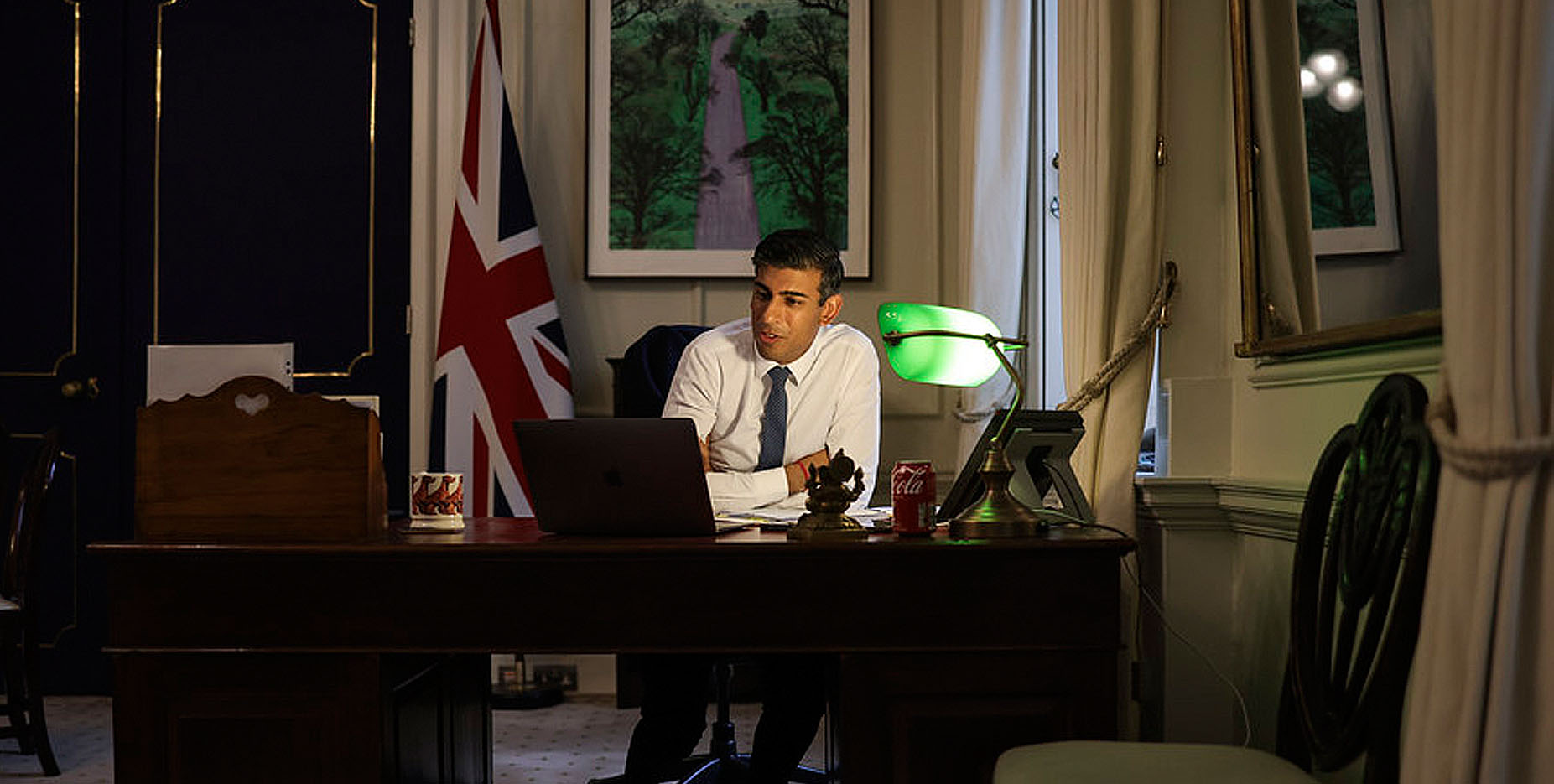
(Credit Simon Dawson / No 10 Downing Street)
Rishi Sunak warned of “difficult decisions to come” when he became the UK’s second unelected PM in seven weeks after Liz Truss was swiftly ousted by Tory MPs. He pledged to “fix” the economic mess, which he blamed in part on the financial turmoil created by his predecessor’s mini budget. Britain’s first Hindu head of government admitted “mistakes were made” as if to make amends for his Tory colleague.
Sunak, the youngest PM in over two centuries, offered a slightly less far-right vision than his predecessors. The former chancellor was ironically brought back after losing the earlier hustings to Truss, after the belated recognition that she was unfit for office.
Johnson himself was forced to resign after being discredited in a string of scandals.
Insisting his predecessor’s mistakes were not “born of ill will or bad intentions,” Sunak must diplomatically reunite a dysfunctional party or call a general election, an unlikely option, with the Tories facing a virtual wipe-out in the opinion polls.
Amassing a credible cabinet is a daunting task and full of pitfalls, as was soon proved by the controversies surrounding his reinstatement of Home Secretary, Suella Braverman, the appointment of Dominic Raab as his deputy, and the short-lived inclusion of Minister without Portfolio, Gavin Williamson.
His cabinet had been quickly assembled to cater to all wings of his party, even if it did not include any Muslim members. He opted for a less confrontational style and reversed the excesses of some of the earlier policies of his two right-wing contemporaries.
These included seeking a more accommodating approach with France in resolving the post-Brexit immigration crisis. Another was a softer line on the divisive Northern Ireland protocol, while he also met with the Scottish First Minister, Nicola Sturgeon, who is pushing for another independence referendum.
(Credit:Picture by Simon Walker/No 10 Downing Street)
After initially hinting at skipping COP27 in Sharm el-Sheikh, he changed his mind and attended the UN climate summit.
Another welcomed U-turn, was on the lawless Zionist-appeasing plan to move the British embassy in Israel to occupied Jerusalem, a pleasant surprise considering that during his leadership race with self-professed ‘huge Zionist’ Truss, Sunak told Conservative Friends of Israel that the Holy City was Israel’s “undisputed capital” and that there was a “very strong case” for relocating the embassy.
Following the influence of former US President Donald Trump would contravene international law, undermine our relationships in the Middle East, and set a terrible precedent against the backdrop of Russia’s occupation of Ukraine.
On the economic front, Sunak sought a more pragmatic Autumn Statement. Dealing with the massive cost-of-living crises exacerbated by spiralling energy bills and hampered by the disastrous (Tory-inflicted) Brexit on an austerity-weary electorate is one of the most difficult challenges for the former banker and richest parliamentarian.
Immigration and especially the threat to send asylum seekers to Rwanda need resolving, as does the attempt to dilute fundamental human rights, including the legislation already passed to restrict basic rights to protest.
Sunak has yet to demonstrate his determination to restore integrity to the Tory government. A clear indicator will be if, and when he releases his version of the Ministerial Code, one that should be more robust and make clear the lessons of the Johnson era.
For the Muslim community, Sunak must prove that there is a level playing field and they will no longer be reduced to second-class citizens, a dilemma he should appreciate as Britain’s first Asian PM. Sunak has a unique opportunity to right many wrongs. He can start by putting his party’s house in order if he is to genuinely address institutional Islamophobia and racism.